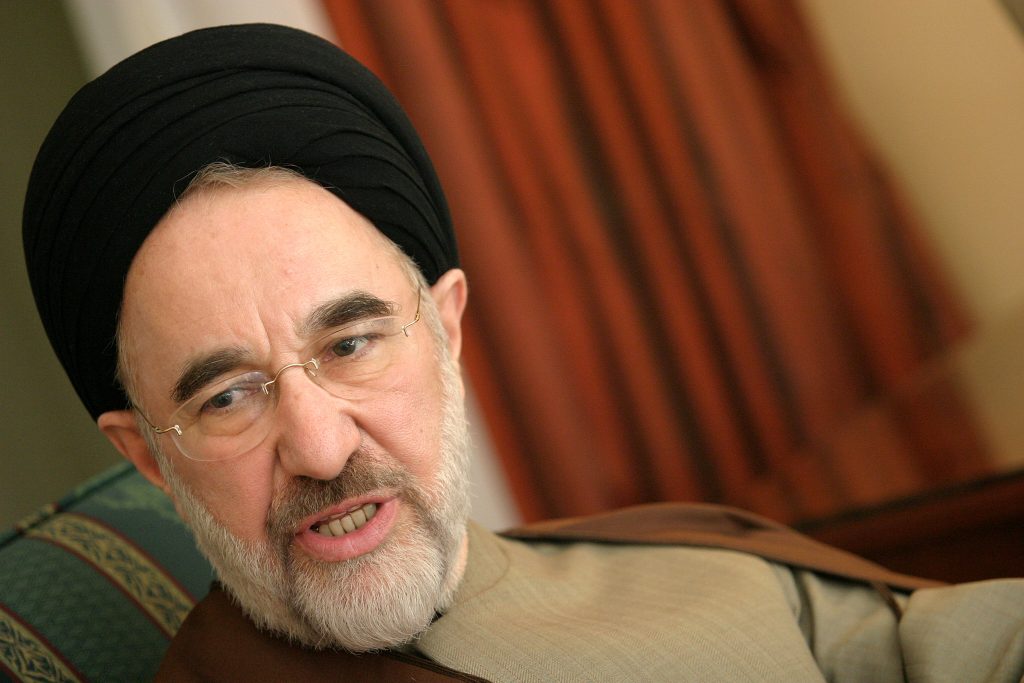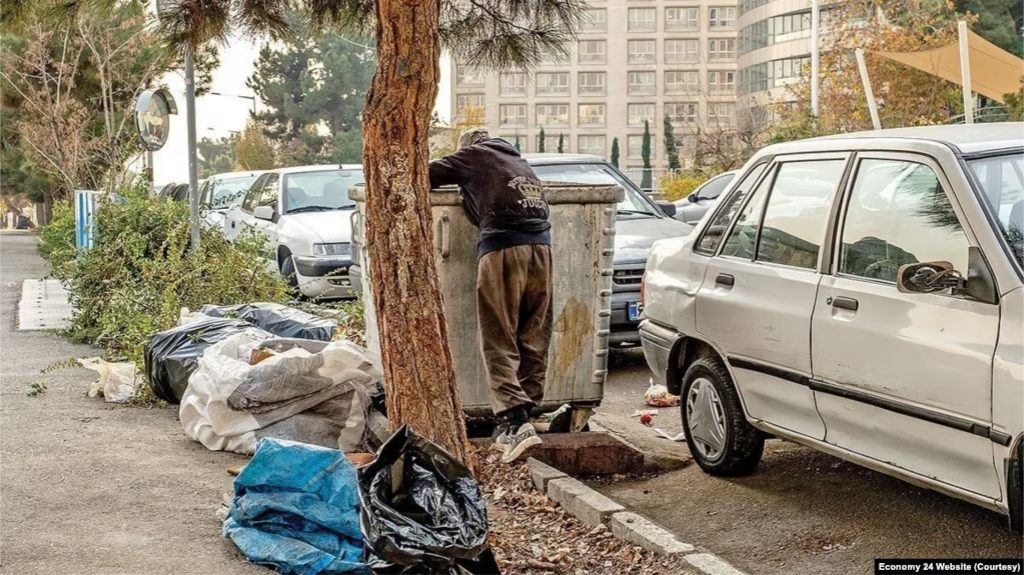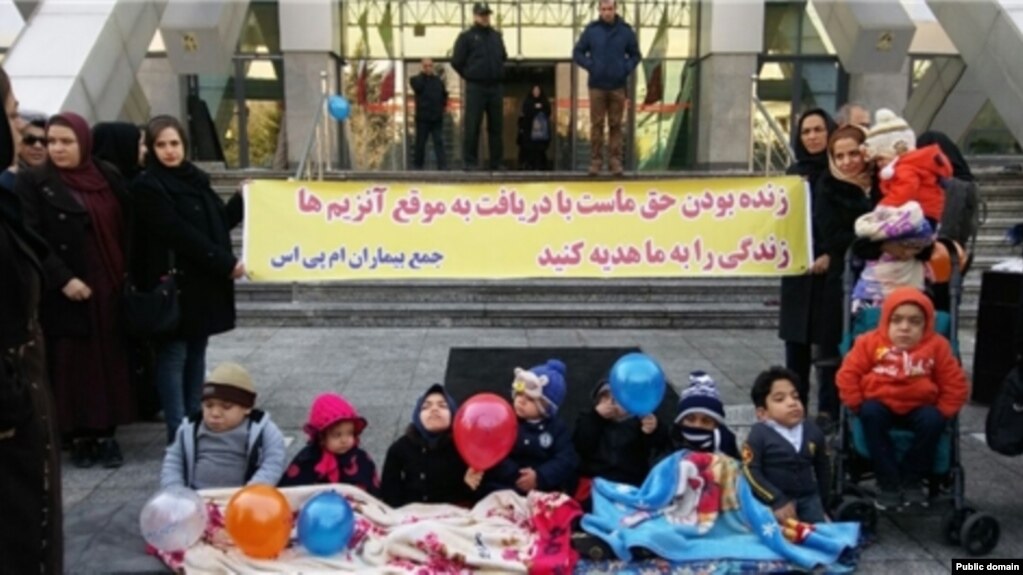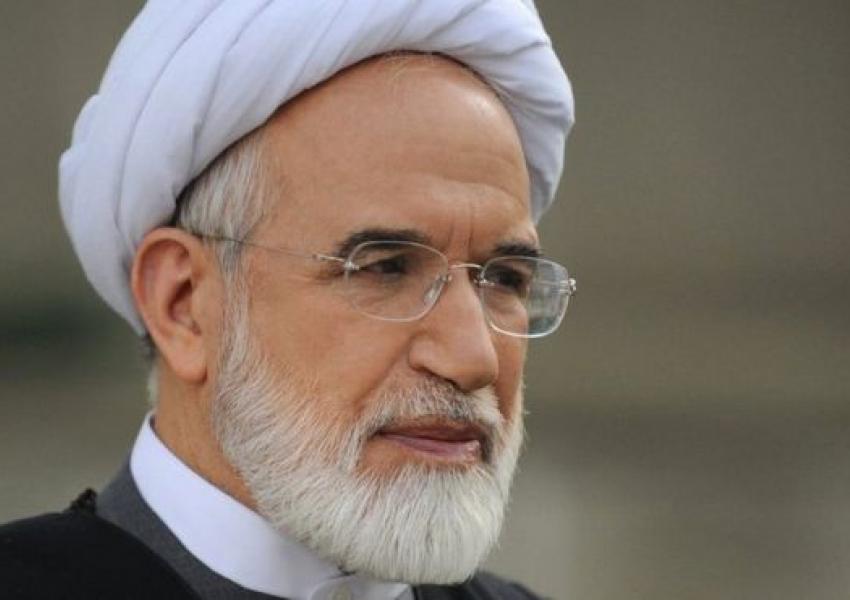
Stop Writing Scenarios, Admit Defeat, Start to Listen!
Ensaf News editorial urges Iranian officials and their supporters to admit defeat in the recent elections and find a solution to overcome the crisis of low public turnout.
The elections of March 1 are over with the lowest turnout in the parliamentary elections in the history of the Iranian republic. Immediately after voting, official media announced the failure of those who had boycotted the polls and discussed the epic public turnout. This is nothing but burying one’s head in the sand and denying reality.
We can continue to beat the drum of electoral victory in which less than 50% of the people took part. But there is also another way which might be more useful:
Do Not Write a Scenario
When public turnout in the 2019 election was under 50%, apologists for the establishment talked of the impact of the coronavirus on participation. So much so that it soon became the official narrative. In this scenario, there was no mention of the catastrophe of November 2019 in which many people were killed, the downing of the Ukrainian passenger flight by the IRGC’s missiles near Tehran and the disqualification of candidates. It was all because of the coronavirus, they claimed!
Admit Defeat
One can only try to find out the reasons for defeat when the defeat itself is accepted. No establishment is always the winner, and the Iranian republic is no exception. So there should be no fear of admitting defeat. When an establishment ties its own legitimacy to people’s participation, low turnout — with less than 50% of people’s participation in three consecutive elections —signals defeat.
Start to listen
When defeat is accepted and its reasons are discovered, it is time to look for solutions. The solution for overcoming the crisis of low turnout in elections (with less than 50%) was reiterated again and again by the late Hashemi Rafsanjani, Mir-Hossein Mousavi, Mohammad Khatami and Mostafa Tajzadeh: full implementation of the Constitution, creating an open space for dialogue and releasing political prisoners, national reconciliation, and holding free and fair elections.
What Is the Message of Low Turnout?
The editorial of Setareh Sobh reviews the results of the recent elections in Iran, highlighting some of the implications of citizens’ low turnout.
The 12th parliamentary and the sixth Assembly of Experts elections were held on March 1 on a cold winter day, with the Iranian people showing no real interest in going to the ballot box. The 11th Parliament was the most conservative and radical Parliament after the Iranian revolution, with an unacceptable record and formed with the minimum number of votes in 2020.
This Parliament had no plans for resolving the economic, social, political and foreign policy problems, which is why it lost its popularity among the people. A part of this Parliament’s time was spent on issues like hijab, cyberspace, etc. During this Parliament’s term — which has been in line with Raisi’s government — people’s situation has worsened from the previous Parliament and government because of the 100% increase in all price indexes and the dollar price after 2021.
This development, which is the outcome of the “hardliners’” policies, has eroded people’s purchasing power and has shrunk their tables. That is why out of 61 million people who are qualified to vote, 36 million people did not vote and only 25 million went to the ballot box. Of course, the number of invalid votes has not been announced yet which will provide more clarity on the real number of voters.
Early estimates show that the configuration of the next Parliament will be from the “hardliners,” which means it will not have a better record than the current one.
Another important point that must be mentioned is that this minority group has no plan or program but has always tried to seize the Parliament and the government. This hardline, extremist group can easily pass through the Guardian Council’s filtering. But the “reformists,” national-religious figures and critics who are in favor of the Constitution are eliminated.
The fact that Sadegh Amoli Larijani, head of the Expediency Council, did not gain enough votes for the Assembly of Experts is significant. He was the head of the judiciary for years, a member of the Assembly of Experts and the Guardian Council.
More importantly, current Parliament Speaker Mohammad Bagher Ghalibaf gained a very low number of votes, which shows the extent of people’s dissatisfaction with him and his Parliament.
The important question is: can a Parliament and a government that have gained less than 50% of the votes represent the majority of the people and make decisions for them?
Reasons for Zelenskyy’s Trip to Saudi Arabia
The editorial of Arman Emrooz considers possible reasons and outcomes of Ukrainian President Volodymyr Zelenskyy’s trip to Saudi Arabia, seeing it in line with Saudi Arabia’s new geopolitical role in the region and beyond.
By holding a summit in Jeddah in the first year of the Russia-Ukraine war in which Zelenskyy and some other countries’ leaders took part, Riyadh tried to act as an intermediary, but to no avail. Currently, Zelenskyy has somehow lost hope in the West’s aid and military assistance to Kyiv and maintains that they have not fulfilled their promises to equip Ukraine more.
Meanwhile, Russia has accelerated the production of arms and, in recent days, has advanced in occupying certain areas in eastern Ukraine. Zelenskyy is probably going to ask Riyadh to convey his worries to US members of Congress and influence them given Saudi good rapport with them.
Currently, the US Congress seems in disarray and there are differences of opinion regarding Ukraine between the Republicans and the Democrats as Zelenskyy’s position diminished.
Biden’s priority in focusing and controlling conditions in the Middle East in the years leading to the US presidential election is changing and there is no clear prospect for ending the war in Ukraine. Probably, this trip’s goal is for getting more aid from Saudi Arabia after the previous $400 million support.
It is also said that support for the Ukraine peace plan is another reason for this trip — a peace plan will be by no means accepted as it questions the rationale for Russia’s attack on Ukraine.
In addition to receiving aid — about which the Saudis will be very cautious due to their good relationship with Putin — the issue of exchanging prisoners of war — facilitated once before by the Saudis — might be on Zelenskyy’s agenda which can be done with Crown Prince Mohammed bin Salman as an intermediary.
Whatever the reasons may be, this trip and its outcomes, even though limited, will add to the credit of Saudi Arabia and Crown Prince Mohammed bin Salman and will be in line with Saudi Arabia’s move toward the geopolitics of creating stability in both the region and beyond. The issue of Ukraine, not entering the crisis in the Bab al-Mandab Strait, the remarks of the Saudi foreign minister at the Munich Security Conference and its particular role in the Gaza crisis are all signs of this new strategy.
New Banking Facilities or a New Year’s Bonus for the Rich
The editorial of Tejarat focuses on the fact that the government’s new initiative for giving loans to people before the start of the new Iranian year (starting March 21) is not just unfair but is also not going to resolve any serious problems.
People who have tried to get the 20-million-toman loan from banks are told that they have to pay it back in two installments in the second and third months of the spring. The rate of interest will be zero — which makes it more like borrowing money. People must spend the money in certain specified stores. The loan will be given to households with good credit ratings, meaning that it will be given to those who paid back previous loans on time.
Offering these loans might help suppliers in Iran’s economy that are not in good condition. Because of the drop in people’s purchasing power, suppliers in Iran are facing tough financial conditions. As we look at shops, they look absolutely different from 10 years ago and that is because of the drop in people’s purchasing power.
Policies like giving loans to people might help them and increase their purchasing power to some extent. The participating banks are either governmental or semi-governmental which means that the government is trying to help people by boosting their purchasing power.
One of the defects of this policy is that the loans must be paid back almost immediately in a couple of months, which means that it is going to put households under pressure when the time comes for paying it back. Before the new year, households must make purchases, but if they get this loan, they must pay two installments of 10 million tomans in two consecutive months. If they were given more time to pay back the loan, say four to six months, households would be under less pressure.
The other issue is that in so far as inflation is not contained, people’s problems will not be resolved because it erodes their purchasing power. Such loans are just temporary solutions that will not have enduring effects. These solutions cannot address the main problem of people’s low purchasing power which is because of the gap between wages and the inflation rate.
Insofar as the inflation rate is not controlled, the economy will not be managed. The government must focus its efforts on resolving the issue of inflation, not on temporary solutions like giving loans.

Iran’s Former “Reformist” President Khatami Refuses to Participate in Elections for the First Time

Hours after the deadline for voting in the parliamentary and Assembly of Expert elections, it was confirmed that former President Mohammad Khatami had not taken part. News of Khatami’s refusal to go to the polls was published by Mohammad Ali Abtahi, who used to be his chief of staff.
“Khatami did not sulk in yesterday’s elections,” Abtahi wrote on X, “He just thought his not voting might be the only way his compassionate words might be heard.”
Before Abtahi’s announcement, there were rumors about Khatami shunning the elections as no photos or video clips were published of him casting his ballot.
Although “reformist” politicians had previously announced that they would not take part in the 12th parliamentary and sixth Assembly of Experts elections, Khatami’s refusal to vote is said to be a major transformation in the political arena of the Iranian state.
Head of the Reformist Front Azar Mansouri also confirmed the news. “The conclusion of the March 2024 elections was announced, and Mohammad Khatami did not vote. He had earlier supported the “reformist” faction’s strategy in this election,” she noted.
Khatami’s non-participation in the elections is unprecedented, notwithstanding expectations. He had been severely criticized for voting in previous elections.
Social media users reacted both positively and negatively to the news, some admiring Khatami and some saying there might be “political objectives” behind his act, like transferring the opposition leadership from abroad to inside the country.
Meanwhile, daughter of former presidential candidate Mir Hossein Mousavi, who is under house arrest with his wife Zahra Rahnavar, denied participating in the elections. Rahnavar wrote on her Instagram account that neither her, nor her two sisters, Kokab and Narges voted in the two elections, “despite all the lies and rumors.”
Shocking Statistics on Increasing Poverty in Iran

Half of people in Iran live under the absolute poverty line, says a report based on official statistics.
The report, published by Eghtesaad 24, points out that the inflation rate is nearly 45% and monthly living expenses amount to at least 25 million tomans.
As the US dollar rate reached over 50,000 tomans at the beginning of this year, the poverty line for living in Tehran passed 30 million tomans. “That said, over half of Iran’s population live under the absolute poverty line,” states the Eghtesaad 24 report.
In another report by ILNA, the livelihood basket of workers in metropolitan cities is said to be reaching roughly 29 million tomans. Not to mention that the inflation rate for food items was in total “145%” in the past three years.
Meanwhile, workers’ minimum wages in the next year are still under discussion. While even official labor unions demand at least 20 million tomans of salary for workers, President Raisi’s deputy Davoud Manzour remarked that “wages should be increased in accordance with the country’s economic conditions and the expected inflation.”
The current minimum wage for married workers with kids is about 8 million tomans; such wages are not paid in workshops or companies not covered by labor laws.
According to Eghtesaad 24, in the past decades, the middle class has gradually disappeared in Iran and society now consists of two social classes: privileged and underprivileged. Currently, the inflation rate is approximately 45% and monthly living expenses are at least 25 million tomans.
Reviewing Iran’s economy in the past two years, the same report states that the US dollar rate has risen from nearly 26,000 to 57,000 tomans; prices of meat, chicken and vehicles have more than doubled, liquidity has increased from 3,700 billion to 6,103 billion tomans and the average housing price has increased from 30 million tomans per square meter to over 70 million tomans.
All things considered, the report expresses grave concerns over the “countdown for the absolute end of people’s economic power in the near future.”
10 Children Die Due to Discontinuation of SMA Medication

Iran’s Dystrophy Society has announced that 10 children suffering from Spinal Muscular Atrophy (SMA) lost their lives because of the discontinuation of medication.
Three months after promises by the health minister about distributing medication for SMA patients, no medication was distributed and “even no Iranian medication has been manufactured,” said the Head of Iran’s Dystrophy Society Ramak Heydari to Faraz news agency.
“During the past month, 10 children affected by SMA died due to the discontinuation of medication and the worsening of their conditions,” she added.
The head of Iran’s Dystrophy Society previously noted that the Health Ministry had refrained from importing the SMA drug during past years owing to its high price, yet under the pretext of its “low effectiveness” and instead tried to offer cheaper drugs.
Spinraza (nusinersen) is the only reliable medicine that has been effective in slowing down this disease so far.
Last December, Heydari stated that many families of patients suffering from SMA have sought refuge in other countries due to a lack of suitable treatment in Iran and to save their loved ones.
The medication crisis in Iran, especially those for rare diseases, continues despite numerous reports on their being sold in the free market at exorbitant prices.
In the same vein, Head of Iran’s Drug Association Shahram Kalantari told Quds daily recently that “non-druggist investors take some rare and expensive drugs from pharmacies in the name of patients and by fake prescriptions from some physicians to sell it in the free market.”
A group of SMA patients and their families held several assemblies in front of the presidential office building in snowy Tehran last week, demanding SMA medication despite the cold weather.
In response to such protests, Iran’s Health Ministry claimed, “There is not enough budget for providing drugs for these patients.”
Mehdi Karroubi Hospitalized With Coronavirus

After days of speculation, the son of Mehdi Karroubi, one of the Green Movement’s leaders who is under house arrest, confirmed the hospitalization of his father.
In an interview with the Jamaran website, Hossein Karroubi stated that his father had been discharged from the hospital and is recovering at home now.
He went on to say that due to shortness of breath and low oxygen in his blood, doctors had recommended that his father should use an oxygen machine.
At the end of the interview, Hossein Karroubi added that the diagnosis for the period of time required for using the machine was made by a doctor appointed by the security entities who examine him every 15 days.
Mohammad Taghi Fazel Meiboudi, one of the instructors in Qom Seminary, posted on X (formerly Twitter) on Sunday that Mehdi Karroubi was hospitalized due to coronavirus.
Pointing to this political activist’s 14 years of house arrest without holding a trial for him, Fazel Meiboudi wrote that Karroubi could not talk.
Mehdi Karroubi, 85, has been under house arrest since 2010 upon the order of Iranian Supreme Leader Ali Khamenei.
Along with Mir Hossein Mousavi, Karroubi led the protests against the results of the rigged 2009 presidential elections.
